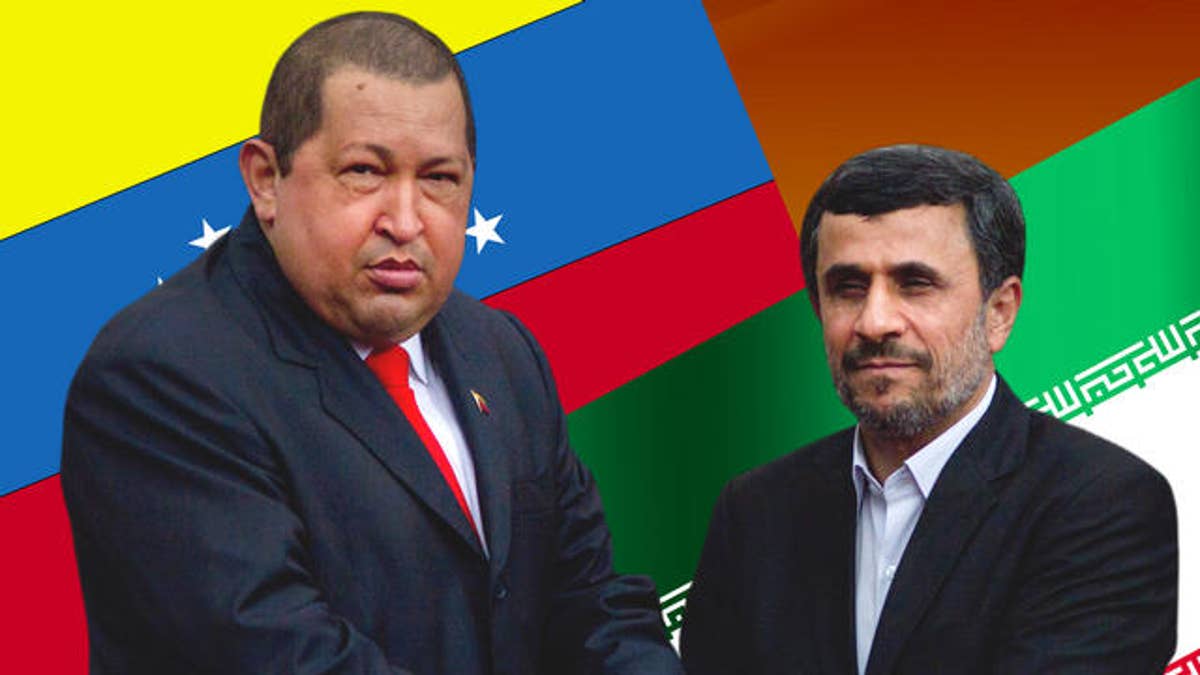
Mitt Romney assailed President Barack Obama for suggesting in a television interview that Venezuelan leader Hugo Chavez poses little threat to the United States.
“This is Chavez who has invited Iran in, who has invited Hezbollah,” said the former Massachussetts governor, who is the expected GOP presidential nominee. “Hezbollah, of course, being a surrogate and a proxy for Iran would potentially have access to weapons that could be used against us. This is Chavez who champions the Bolivarian Revolution movement and is spreading dictatorships and tyranny throughout Latin America.”
“It’s an extraordinary admission on the part of this president to be completely out of touch with what’s happened in Latin America,” Romney said.
Romney’s condemnation of Chavez and Obama’s view of him continues a pattern by the presidential contender of portraying himself as tougher than the President on leftist leaders around the world.
Romney has pushed this distinction between himself and Obama in his effort to woo conservative Latino voters such as Cuban-Americans and others who left in great part because of increasingly oppressive governments in their homelands.
On Wednesday night, the Republican National Committee sent out an e-mail bringing up a video of Obama and Chavez shaking hands in 2009 at the Summit of the Americas in Trinidad and Tobago. Chavez told reporters later that week that "With this same hand I greeted Bush eight years ago. I want to be your friend."
The RNC "handshake" e-mail -- which followed a barrage of emails, sent by the Romney campaign, quoting different GOP leaders condeming Obama's comment about Chavez not being a serious threat -- was titled: "FLASHBACK: Obama And Chavez Hanging Out In 2009."
Like many Cuban exiles, immigrants who came here mainly to escape oppressive governments tend to lean Republican, viewing the GOP as more hard-line than Democrats on foreign policy.
According to U.S. Census figures, the number of Venezuelans in the United States increased from 91,500 in 2000 to 215,000 in 2010. The Organization of Venezuelans in Exile says 160,000 to 200,000 of those Venezuelans live in Florida.
The Obama campaign shot back by calling Romney's criticism an attempt "to score cheap political points by blustering and misrepresenting the President’s record while failing to outline any coherent foreign policy strategy.”
“Because of President Obama’s leadership, our position in the Americas is much stronger today than before he took office," said a statement by campaign press secretary Ben LaBolt. "At the same time, Hugo Chavez has become increasingly marginalized and his influence has waned. It’s baffling that Mitt Romney is so scared of a leader like Chavez whose power is fading, while Romney continues to remain silent about how to confront al-Qaeda or how to bring our troops home from Afghanistan."
Last week, on July 5th, Romney put out a statement marking Venezuela’s Independence Day and telling the Venezuelan community in the United States and abroad that he is their ally.
“Americans of Venezuelan heritage have greatly enriched the culture and history of the United States," the statement said. "We acknowledge, however, that Venezuela's current leader dishonors the ideals of liberty upon which Venezuela was founded."
"Hugo Chavez is leading a movement in Venezuela and throughout Latin America that seeks to undermine freedom, diminish prosperity, and expand tyranny. Today is a day to reaffirm our commitment to defending democracy and to stand with those in Venezuela and elsewhere who bravely speak out for the rights of their countrymen.”
The Obama administration also released a statement observing the holiday, but its language was not nearly as directly critical of Chavez as Romney's.
During the Republican primary, particularly in events that involved Florida -- a key swing state -- several of the candidates, including Romney and Newt Gingrich, advocated a hard line toward the socialist regimes of Cuba and Venezuela.
During the face-off in Miami, Romney said “it is time for us to strike for freedom in Cuba.”
“If I’m fortunate enough to become the next president of the United States, it is my expectation that Fidel Castro will finally be taken off this planet,” Romney said. “I doubt he’ll take any time in the sky. He’ll find a nether region to be more to his comfort.”
Political observers say that Venezuelan-Americans generally remain more focused on the politics of their homeland than on U.S. politics.
A reporter for the public radio program PRI's The World noted that, nevertheless, in Florida "tough talk toward Hugo Chavez matters."
"And the Republican presidential candidates know it," wrote the reporter, Jason Margolis. "Mitt Romney has been chiding President Obama for being weak on Chavez."
The U.S. State Dept. website notes that since 2005, Chavez has grown close with the government of Iran, a U.S.-designated state sponsor of terrorism. The agency notes that the Venezuelan government "has signed multiple economic and social accords with Iran and has publicly supported its controversial nuclear program. Chavez has defined Iran as a close 'strategic ally.'"
At the same time, the agency adds that "U.S.-Venezuelan commercial ties are deep."
"The United States is Venezuela's most important trading partner, with U.S. goods accounting for about 24 percent of imports and approximately 42 percent of Venezuelan exports going to the United States. In turn, Venezuela is the United States' fifth-largest export market in Latin America."
This story contains material from The Associated Press.
Follow Elizabeth Llorente on Twitter: @Liz_Llorente
Elizabeth Llorente can be reached elizabeth.llorente@foxnewslatino.com
Follow us on twitter.com/foxnewslatino
Like us at facebook.com/foxnewslatino












































